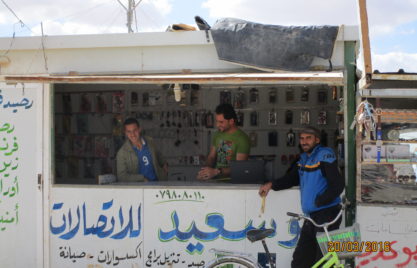By regulating the microfinance sector in Jordan and licensing the MFIs, the Central Bank will contribute to stabilizing the system in alignment with financial inclusion goals.
Following the Microfinance bylaw (enacted in December 2014) and the licensing instruction (published in April 2016) the Central Bank of Jordan (CBJ) requested Jordanian MFIs to apply for a license before the end of June 2017. Around ten MFIs are expected to apply, some of them applied already, few asked for extension due to special reasons, and of course two have special microfinance law (central bank of Jordan might consider their legal status later).
Applying MFIs are requested to provide among other things, their business plans with financial projection for the next three years, financial statements of the last three years and all related documents which reflect their operation characteristics and profile.
The team of Microfinance and Credit Bureau Supervision Department at CBJ has already acquired strong experience in microfinance skills, regulation and supervision, due to the capacity development provided by GIZ. This included training courses on different microfinance topics in addition to designing the offsite supervision tool and manual.
MFIs are supposed to follow good (if not best) practice in their operations. The CBJ team shall monitor the performance of those MFIs to ensure the stability of the microfinance and financial sector as a whole, and also to follow up on their performance concerning consumer protection, handling of client complaints and the role of MFIs in achieving financial inclusion targets.
The review of the license application including the field inspection is an important stage. The CBJ team will check and inspect the strengths and weaknesses of MFIs, recommend areas for improvement and follow up on the development later. Areas which might need some improvement in some MFIs are: consumer protection, internal audit, risk management, pricing and interest rate. These areas vary from one MFI to another. As a result licensed MFIs will have to report periodically on their performance. These offsite reports include indicators covering the above mentioned areas in addition to the financial performance and quality of portfolio. Furthermore the CBJ team will have onsite visits to check the quality of the operations and performance as a follow up to the offsite supervision.
The Central Bank of Jordan is preparing a national strategy for financial inclusion in cooperation with partners and stakeholders. Having good capacity and governance of the microfinance sector in the country, along with good supervision from CBJ will contribute greatly to achieving the goals of the financial inclusion strategy.
By Ozaina Aljundi



